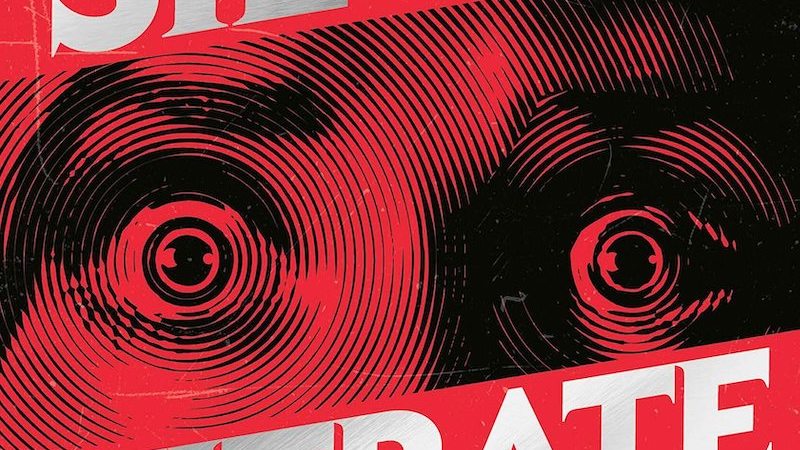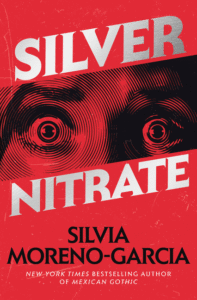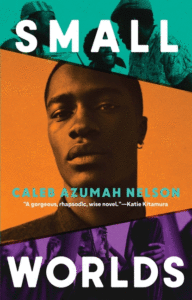
Colson Whitehead’s Crook Manifesto, Silvia Moreno-Garcia’s Silver Nitrate, and Samuel G. Freedman’s Into the Bright Sunshine all feature among the Best Reviewed Books of the Week.
1. Crook Manifesto by Colson Whitehead
(Doubleday)
10 Rave • 7 Positive • 3 Mixed • 1 Pan
Read an interview with Colson Whitehead here
“Both deceptively substantive and sneakily funny, a wise journey through Harlem days and nights as lived by Ray Carney, a conscientious furniture salesman and family man who happens to run a little crooked … Whitehead has always had a sharp instinct for the workings of culture … Whitehead’s New York of the ‘70s is a fully realized universe down to the most meticulous details, from the constant sirens and bodega drug fronts to a sweltering, abandoned biscuit factory … A…reminder, as if we still needed one, that crime fiction can be great literature. These books are as resonant and finely observed as anything Whitehead has written.”
–Chris Vognar (The Los Angeles Times)

2. Silver Nitrate by Silvia Moreno-Garcia
(Del Rey)
5 Rave • 3 Positive • 1 Mixed
“True to her method, she succeeds here by knowing when to follow the rules of genre storytelling and when to turn them upside down … Several times in Silver Nitrate, a spirit commands, ‘Follow me into the night.’ While the better part of us hopes Montserrat and her compatriots will refuse, there is simply no resisting the dark spells cast by Moreno-Garcia’s characters—nor those so expertly cast over readers by the author herself.”
–Paula L. Woods (The Los Angeles Times)

3. Small Worlds by Caleb Azumah Nelson
(Grove)
5 Rave • 2 Positive • 2 Mixed
Read an excerpt from Small Worlds here
“Turning pain into a blissful art form is nothing new for black creators, many of whom are namechecked in this culturally open novel. But Azumah Nelson is something new: an unashamedly clever, spiritual, angry, loving voice in fiction, just when we need it most. Small Worlds is a book for everyone. Sure, unless you are a London teenager or live with one, you’ll probably miss the resonance of some words and phrases—but no matter. No one could fail to feel the message, of always striving for emotional honesty and hope, that is at the heart of this uplifting symphony of a summer read.”
–Melissa Katsoulis (The Times)
**
1. Into the Bright Sunshine: Young Hubert Humphrey and the Fight for Civil Rights by Samuel G. Freedman
(Oxford University Press)
5 Rave • 3 Positive
“Riveting … Freedman tells a surprising and rare history of Black and Jewish Americans fighting against racism and antisemitism, often side by side, in a Northern city before the civil rights era. His brilliant profiles of these local heroes are gripping and, in many ways, the spine of the book … Freedman gives us a dramatic retelling of the backdoor dealings at the convention over the language of a civil rights plank.”
–Khalil Gibran Muhammad (The New York Times Book Review)
2. Blight: Fungi and the Coming Pandemic by Emily Monosson
(W. W. Norton & Company)
1 Rave • 3 Positive
“Monosson commendably serves as a medical Paul Revere by persuasively warning us that dangerous fungi are already causing havoc among plants, animals, and humans, and more are on the way … Monosson thoroughly reviews the wallop of fungi on wildlife, including white-nose syndrome wiping out bats and the demise of frog populations from chytridiomycosis. Many kinds of trees are threatened by fungus (white pine blister rust, cedar-apple rust). Even the beloved Cavendish banana, is endangered by an aggressive fungus (fusarium wilt). Pathogenic fungi are experts at surviving. They make formidable foes. Neglecting these emerging organisms is truly hazardous to health.”
–Tony Miksanek (Booklist)
3. Kings of Their Own Ocean: Tuna, Obsession, and the Future of Our Seas by Karen Pinchin
(Dutton)
1 Rave • 2 Positive • 1 Mixed
“The descriptions of Amelia’s undersea wanderings are where Pinchin’s writing really comes alive, manifesting her passion for protecting all marine life. The author ends with a recap of current conservation efforts and a solemn reminder of how human actions too often interfere with fragile, interdependent ecosystems.”
–Kathleen McBroom (Booklist)

